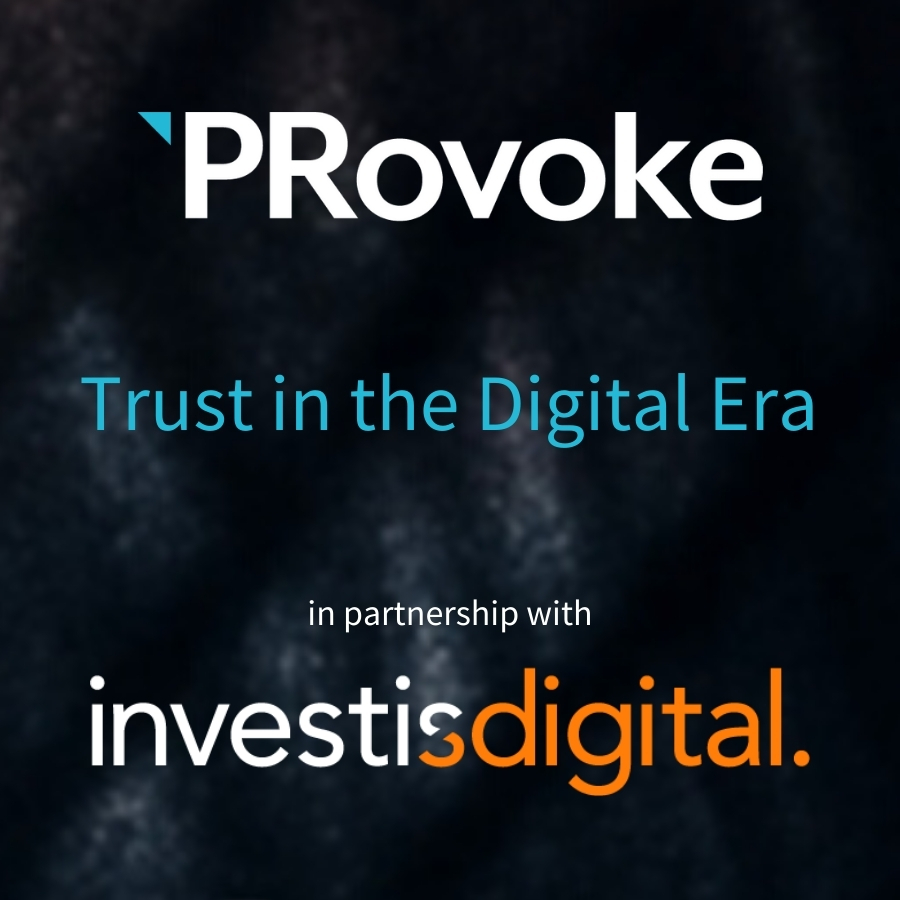Brent Giannotta 20 Apr 2021 // 7:23PM GMT

Before the pandemic, the strength of a brand’s digital presence was an important component of its awareness strategy. But just as the pandemic has transformed so much, it has also critically amplified the importance of a brand’s web presence. Add digital natives like Generation Z to the mix and it’s clear that agencies that understand this new reality — and encourage their clients to adopt a slew of online improvements — will be among those that thrive by earning one of the most valuable currencies in business: trust.
“It doesn't matter what industry you’re in,” says Luke Bishop, vice president and client partner with Investis Digital. “Up until a few years ago, companies relied on face-to-face interactions. We’d book a meeting, look partners in the eye, and shake hands. Now, we have to build relationships digitally. Now, the web is not just a place for content; it’s a place that has to deliver transparent, findable, accessible, accurate, optimized content.”
Take for instance, a recent survey that found that trust matters more than ever — and 88% of consumers expect companies to accelerate digital initiatives due to the pandemic and more than three quarters expect consistency. And, of course, it’s easier than ever for consumers to research a brand online before buying.
"A brand’s digital presence won’t get less important as we start to reincorporate travel and live meetings into operations”
While many agencies now offer integrated services that lean into the blurring of digital marketing and PR — some brands may still take a siloed approach. In that case, PR still plays a vital role in optimizing the brand’s online reputation, even if that stops just short of sales.
“We used to try to convey a brand’s purpose and performance in a 200-page annual report,” says Rachael Zahn, VP for marketing and sales at Investis Digital. “Now, no one’s gonna read that. The website is now the foundation, and over half of companies said their website is critical to their entire communications strategy. But less than 50% are getting help for this. It’s up to agencies to make sure their clients are represented effectively online.”
To optimize digitally, Bishop advises communications managers to immediately do full-scale assessments of their client’s online posture, with an eye toward establishing seamless continuity and enhancing user experience.
Zahn adds that while auditing a brand’s online presence, it’s crucial to travel along the journey the user is expected to make and start at the beginning, which is almost never the website.
“The beginning of a brand is a Google search,” Zahn says. “What is showing on Google? Is it a damaging story? If so, you must get that changed, and you can. If you don’t tell your brand’s story, someone else will. You must claim that space, tell a story, and own it.”
While streamlining a brand’s story, communications veterans encourage being bold in approaching that connection with users. Gary Grates, a principal at Real Chemistry (formerly W2O Group), recommends four rules when crafting a digital presence:
1. Focus on the future, but don’t ignore the present
2. Do something different first and let people know
3. Get stakeholders moving and active
4. Let your purpose speak through your actions and rhetoric
“We live in a ‘discover vs. sell’ world,” Grates says. “Marketers need to ignore their instincts and start talking to people and not at them.”
Zahn agrees that streamlining the user experience of the brand’s values is key to digital presence in the 21st century, and adds two rules of her own. “Employee testimonials. Of the best websites globally, 95% of them had statements on their values and culture,” says Zahn. “But very few have employee videos. The best content will come from people in the company.”
“Gen Z is a core and critical reason things can’t go back to the way they were”
In 2021, the contours of a brand’s story need to look different than in years past. The reason: a rising generation of users — Generation Z — is pressuring the entire economy to adopt socially and environmentally responsible business practices. These young consumers are digital natives, they’re earning their own money, and they’ll continue to spend money on brands that align with their value system.
“Gen Z is a core and critical reason things can’t go back to the way they were,” says Bishop. “They are super vocal at holding companies accountable. All surveys say the same thing: Gen Z doesn’t trust the government or big corporations. Therefore, you need to build trust with them. How do they engage? Online. Gen Z does not conform. They expect the world to conform to them.”
Courting Generation Z — a digitally-native cohort with short attention spans and money to spend on companies' values — just might be the best strategy for brands to optimize their digital presence and gain trust from stakeholders.
These changes are not major. Rather they are tweaks that industrious nimble companies can and should make to excel in a post-Covid economy. There is now a higher premium on digital presence, on demonstrating values, on conveying those values effectively online, and on using the right people to convey them.
“Trust your employees,” says Zahn. “Trust them to put out your brand’s story on social media. The world of work is digital and brands need more direction on how to rep themselves.”
“Gen Z wants to be a part of you, a part of the brand,” says Bishop. “As we proceed into 2021, a brand’s digital presence won’t get less important as we start to reincorporate travel and live meetings into operations. It will only get more important, and the brands that capture the most market share in 2021 will be the ones that best optimize the entirety of their digital presence. Data and content are great, but context can really be the difference between things going well and things going horribly wrong.”



































.jpg)


















